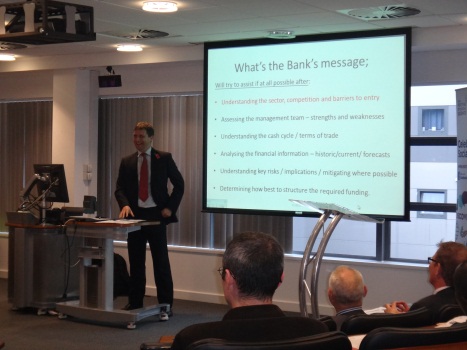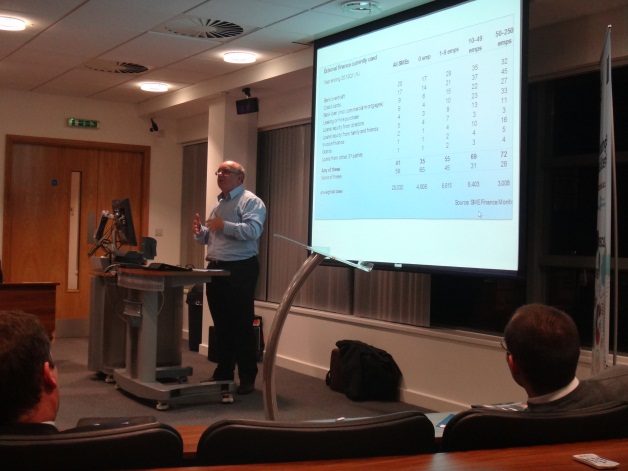Industrial Strategy
The Government launched the Industrial Strategy Green Paper and consultation at the end of January. The paper focuses on improving Britain’s innovation and productivity in key areas alongside upskilling the workforce to become world leading. The government suggest a number sectors to support:
- clean energy
- robotics
- healthcare
- space technology
- quantum technology
- advanced computing and communications
The document references the role of Universities as innovation leaders, challenges us on taking a greater role in commercialisation and pushes for more cooperation with business. There is also a focus on skills and particularly on technical education with a proposal for new Institutes of Technology. There is an emphasis on rebalancing the difference in Britain’s economic geography through infrastructure investment and asks for suggestions about how to ensure that research funding is distributed across the country. There is a link to a speech by Greg Clark here.
The approach taken the Green Paper has been criticised by the House of Commons BEIS Committee in their report issued today. The criticisms centre on the view that the document is not sufficiently ambitious, only setting out incremental proposals and that is insufficiently industrial and not very strategic (see the article in The Times by the committee chair). We were pleased to host a Universities UK regional roundtable today with representatives from across the South-West – we’ll update more about the content next week. The consultation ends in April, we are preparing a BU response – if you would like to contribute please contact policy@bournemouth.ac.uk
Brexit and immigration
The House of Lords are continuing their discussion of the Bill that will confirm that the government can trigger Article 50 and start negotiations for the UK to leave the EU. On Wednesday the Lords voted to force the government to give a guarantee to EU citizens living in the UK that they will be protected when the UK leaves the EU. This amendment is likely to be over-ruled in the House of Commons in due course, but it is important to recognise the concern across the UK about this issue, and the impact on our EU staff of the continued uncertainty.
The House of Lords European Union Committee publishes its report on the impact of Brexit on Gibraltar, in which it makes clear that the UK Government has a ‘moral responsibility’ to ensure that Gibraltar’s voice is heard, and its interests protected, throughout Brexit negotiations with the EU. Of all the British Overseas Territories, only Gibraltar is part of the EU and was therefore eligible to take part in the referendum of June 2016. 95.9% of votes cast in Gibraltar were for the UK to stay in the EU, by far the strongest vote for ‘remain’ of any area eligible to participate in the referendum. Yet the territory is now set to leave the EU along with the UK, and faces significant challenges as a result. The report refers to evidence given by Professor John Fletcher
You will recall that at the Conservative Party conference in November, a consultation on potential changes to immigration rules for international students and staff was announced but was postponed. In the meantime, the Home Affairs Committee is conducting an inquiry into developing a consensus on effective immigration policy. This includes an opinion survey open to all run by National Conversation – it is worth taking a look and responding to it.
UUK International have issued a report on mobility in the 2014-15 graduating cohort which demonstrates a correlation between outward mobility and improved academic and employment outcomes – particularly for under-represented groups (who are particularly under-represented when it comes to mobility).
Higher Education and Research Bill
The Higher Education and Research Bill reaches the report stage in the House of Lords next week. One opposition amendment was passed by the House of Lords in committee stage, seeking to define the role and function of universities. Responding to the debates in the House of Lords and discussion with the sector, a large number of helpful additional government amendments have now been proposed along with further amendments proposed by peers. One key amendment proposed jointly by the government and opposition includes a definition of institutional autonomy to replace the opposition amendment that was passed. Further proposed amendments include changes to allow for higher fees to be charged for accelerated degrees – although not to increase the total cost of a degree. You can see the latest set of draft amendments here and a letter from the Minister here.
HEFCE student data
Times Higher Education report on new HEFCE data – 90,600 UK and EU students began full-time taught postgraduate courses at English universities in 2016-17, up by 16,100 (22 per cent) on the previous year. The number starting part-time grew more modestly, but still shows an estimated increase of 8.6 per cent (5,900) to 74,900. This is likely to be partly attributable to the new PG loans. The picture on international post-graduate students is more mixed. The THE article continues “According to Hefce, full-time domestic and EU undergraduate enrolments also grew by 1 per cent to a record 408,000 students in 2016-17, However, 2016-17 is “likely to be a peak year as the declining population of 18-year olds, the consequences of the EU referendum and the transition from bursaries to loans for nursing students will put downward pressure on the number of entrants in 2017-18”.”.
Credit transfer in higher education – following the announcements last week about changes to the HE and Research Bill relating to credit transfer and accelerated degrees, we are still waiting for the government response to last summer’s insulation, but ahead of that they have released research into both areas:
On credit transfer it is clear that there isn’t much evidence – and suggests a wider range of benefits for students, employers and institutions. It lists a similar lists of challenges with the idea to those identified in last summer’s consultation – but also identifies lack of demand as one of the challenges – but linked to awareness amongst students. A requirement to publicise the availability of existing schemes is the minimum we can expect from the government response. But the note about “rigid and inflexible admissions timetable whereby enrolment for most courses is typically only allowed once a year” may hint at another. As we said in our response to the consultation, cohort identify is a good reason for this sort of “inflexibility” – and a curriculum which is based on progression from one area of learning to the next is another. . The Guardian covers the story here.
The accelerated degrees literature review also includes a case study. The review includes some potential areas for action that are highlighted by the research – including agreeing a definition of a standard accelerated degree, promotion of positive messages about them, monitoring information about real costs, outcomes and experiences for staff and students, and changing funding – interestingly “additional and sustained central funding” – which will be very interesting if it turns up in the consultation response.
HESA finance data for UK HE
HESA released data on the financial position of UK higher education providers. According to HESA, the data reveals a total income for the HE sector of £34.7 billion in 2015/16. Income from tuition fees was £16.8 billion representing 48.4% of total income. The sector’s total expenditure was £33.0 billion, of which £18.0 billion (54.6%) was spent on staff costs.
Accounting standards for higher education providers changed for 2015/16 so that this year’s data is not comparable with previously published HESA finance data. HE providers submitted re-stated figures for 2014/15 based on the new standards, but transitional changes, such as an inflation of staff costs, are reflected in these figures so they should be interpreted with caution.





















 Beyond Academia: Exploring Career Options for Early Career Researchers – Online Workshop
Beyond Academia: Exploring Career Options for Early Career Researchers – Online Workshop UKCGE Recognised Research Supervision Programme: Deadline Approaching
UKCGE Recognised Research Supervision Programme: Deadline Approaching SPROUT: From Sustainable Research to Sustainable Research Lives
SPROUT: From Sustainable Research to Sustainable Research Lives BRIAN upgrade and new look
BRIAN upgrade and new look Seeing the fruits of your labour in Bangladesh
Seeing the fruits of your labour in Bangladesh ECR Funding Open Call: Research Culture & Community Grant – Apply now
ECR Funding Open Call: Research Culture & Community Grant – Apply now ECR Funding Open Call: Research Culture & Community Grant – Application Deadline Friday 12 December
ECR Funding Open Call: Research Culture & Community Grant – Application Deadline Friday 12 December MSCA Postdoctoral Fellowships 2025 Call
MSCA Postdoctoral Fellowships 2025 Call ERC Advanced Grant 2025 Webinar
ERC Advanced Grant 2025 Webinar Update on UKRO services
Update on UKRO services European research project exploring use of ‘virtual twins’ to better manage metabolic associated fatty liver disease
European research project exploring use of ‘virtual twins’ to better manage metabolic associated fatty liver disease